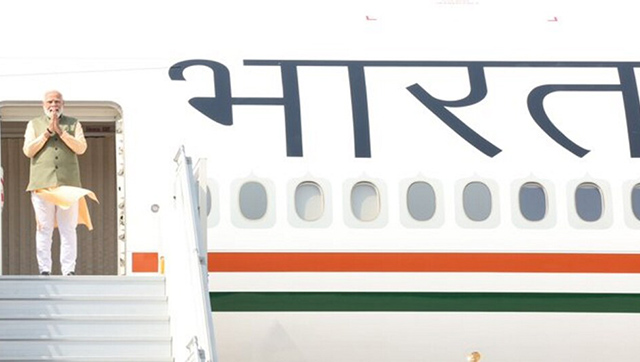Election results in Nagaland had been easier to predict than the other states in the Northeast. The recently concluded polls was an exception in the hill state as the contest was unusually tough despite the fact that the ruling NDPP-BJP was endowed with all the resources to clinch a victory.
Finally, the National Democratic People’s Party (NDPP) won the lone seat with a narrow margin of 17,768 votes after trailing until late in the evening on the day of counting. This was not only a departure from the previous trends but it also carried a stern message for the Narendra Modi government that the rebel outfits or the Naga National Political Groups are unlikely to compromise on their core demands.
In Nagaland, the peace process between the government and NSCN(IM) has influenced the outcome of the polls since 2003. The Naga People’s Front (NPF), formed a year earlier, supported the talks and espoused the Naga cause. It won the Assembly elections for the third consecutive term in 2013 and all general elections since 2004 with huge margins of at least 4 lakh votes.
But trouble began for the party following a squabble between two factions led by Neiphiu Rio and T R Zeliang three years ago. Subsequently, Rio left NPF to float the NDPP which joined hands with the BJP to secure a victory in the Assembly polls last year with the slogan “solution before election”. This was taken to mean that the much-awaited agreement on the charter of demands submitted by NSCN(IM) would be inked ahead of the general elections.
The optimism also stemmed from the Framework Agreement of 2015 and the engagement of other rebel groups (Naga National Political Groups) in the peace process. The objective was to ensure the acceptance of the forthcoming agreement by all groups and avoid a repetition of the situation witnessed in the aftermath of the infamous Shillong Accord (1975). Prime Minister Narendra Modi had also declared ahead of the previous Lok Sabha elections that a solution would be arrived at within 18 months.
The situation changed ahead of 2019 Lok Sabha Elections
The situation in Nagaland and other Naga-inhabited areas of the Northeast underwent a change last February when the BJP leadership decided not to give in to NSCN(IM)’s demands for a separate flag and constitution for Nagaland. As a damage control exercise, senior BJP leader Sanjay M Ram Paswan rushed to Kohima and assured that an agreement would be finalised after the elections. So, it was ’election for solution’ for the time being which ought to be accepted by the electorate.
Paswan’s rhetoric was met with sharp criticism by groups and prominent citizens across Nagaland. Days later, interlocutor for the talks R N Ravi was rebuked, as well, when he landed in Kohima to brief legislators and civil society organisations on the status of the peace process. The fallout of the controversy was the decision by the NPF to support the Congress in the general elections and fielding its own candidate in the Outer Manipur Lok Sabha constituency which has a large chunk of Naga voters.
“People want a quick solution to the issues which have been lingering for decades. NDPP and BJP were not seen as sincere on the peace process promise which explains the large number of votes garnered by the Congress in Nagaland,” said Professor Rosemary Dzuvichu of Nagaland University.
That, however, is only one part of the story explaining the NPF’s impressive win in Manipur and the outstanding performance of the Congress in Nagaland after many years. What nobody admits on record was the role played by the NSCN(IM) in campaigning against the BJP and its allies in both the states of the Northeast.
NSCN(IM) support to Congress and NPF
In the second week of April, controversy erupted after a senior functionary of Kuki National Army was seen on social media threatening village chiefs in Manipur to ensure that people voted for the BJP candidate in their respective areas. The chief electoral officer ordered an inquiry into the episode and dashed off a letter to the state chief secretary requesting him to initiate all steps to confine rebel cadres to their designated camps.
An activist of another Kuki rebel outfit later claimed that the BJP was concerned over the campaign being carried out by NSCN(IM) in the Naga-inhabited areas of Manipur and Nagaland. “NSCN(IM)’s stance was very clear and it was certain that the BJP and its ally NDDP would lose both the seats. So there was an effort to consolidate the non-Naga votes in Outer Manipur,” he said.
The NSCN(IM) appears to be annoyed with what a functionary described as ‘false promises and delaying tactics’ of the BJP. Its decision to support the candidates belonging to the non-NDA parties in the general election was reportedly taken after a series of meetings in the headquarters at Camp Hebron near Dimapur and after the approval of senior leaders. Complementing the NSCN(IM)’s efforts was the NPF’s unrelenting campaign portraying BJP as a threat to Christians which swayed a large section of the electorate in both the constituencies.
An impression is gaining ground among NSCN(IM) cadres that the Centre would prefer to maintain status quo over the peace process for the time being but the security forces might be instructed to adopt an aggressive posture with the outfit in the areas where it is active. Some of them even believe that the talks could come to a halt after the demise of general secretary Thuingaleng Muivah who is now in his mid-eighties.
Last month, the NSCN(IM) was forced to evacuate an unauthorised camp in Manipur’s Ukhrul which was followed by another incident at Dimapur when three activists of the organisation were apprehended with arms and ammunition. There are also rumours that more troops would be deployed in Arunachal Pradesh to flush out NSCN(IM) cadres from Tirap and Longding following the assassination of former legislator Tirong Aboh along with ten other people last month.


)




)
)
)
)
)
)
)
)